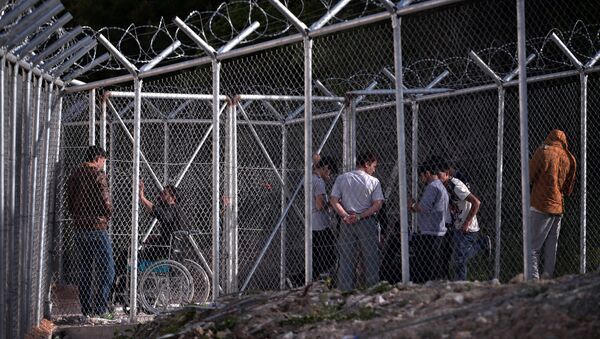Radio Sputnik discussed the issue with Dr. Martin Lemberg-Pedersen, Assistant Professor in Global Refugee Studies at Aalborg University.
"We are used to being an emigration country, sending hundreds of thousands of people to the US. But in the last decades, we've been experiencing more of an immigration status, and this has raised some questions," the expert told Radio Sputnik.
Meanwhile, the European Network Against Racism NGO has issued a report saying that exclusionary migration policies are having a harmful impact on migrants, including in Denmark. According to the report, migrants across the EU are increasingly becoming targets of racism and violence.
Commenting on the issue, Lemberg-Pedersen said that Danish nationalist parties are now seeking to stop the influx of migrants to the country.
"When you look at the different kinds of migration policies, we need to distinguish them, of course. Because there is such a thing as labor migration, and then there is also a more humanitarian aspect which is traditionally understood as refugee politics. In these situations, we are facing different kinds of guests. And some of these guests are people we promised to take care of because of their dire humanitarian need. The conversation that's going on in Denmark right now is one where traditional promises, for instance the Refugee Convention from 1951, are being questioned increasingly by more nationalist parties who want to sign out of such conventions," the expert said.
"Now European leaders are celebrating because it [the deal] has led to a fall in asylum applications. But if we look at the humanitarian conditions of the Syrian refugees, they have really worsened," Lemberg-Pedersen said.
According to the expert, the refugee problem should be jointly resolved by the international community, and not only by the EU.
"This is a question that requires action on several levels at the same time. […] We also need to realize that it's not just a European problem, that we need a go-to solution, when a number of countries act together in order to offer safe haven for refugees and of course help the regions of origin, like Turkey, Jordan, Lebanon, which are experiencing the vast majority of all these displaced persons," the expert concluded.
European countries have been trying to cope with a heavy influx of migrants over the last couple of years, with Denmark having one of the strictest policies toward newcomers. As a result of Denmark's stern immigration policy, only 714 people applied for asylum in Denmark during the first quarter of 2017, which is the lowest number in 6 years and a steep fall compared to the previous year.



